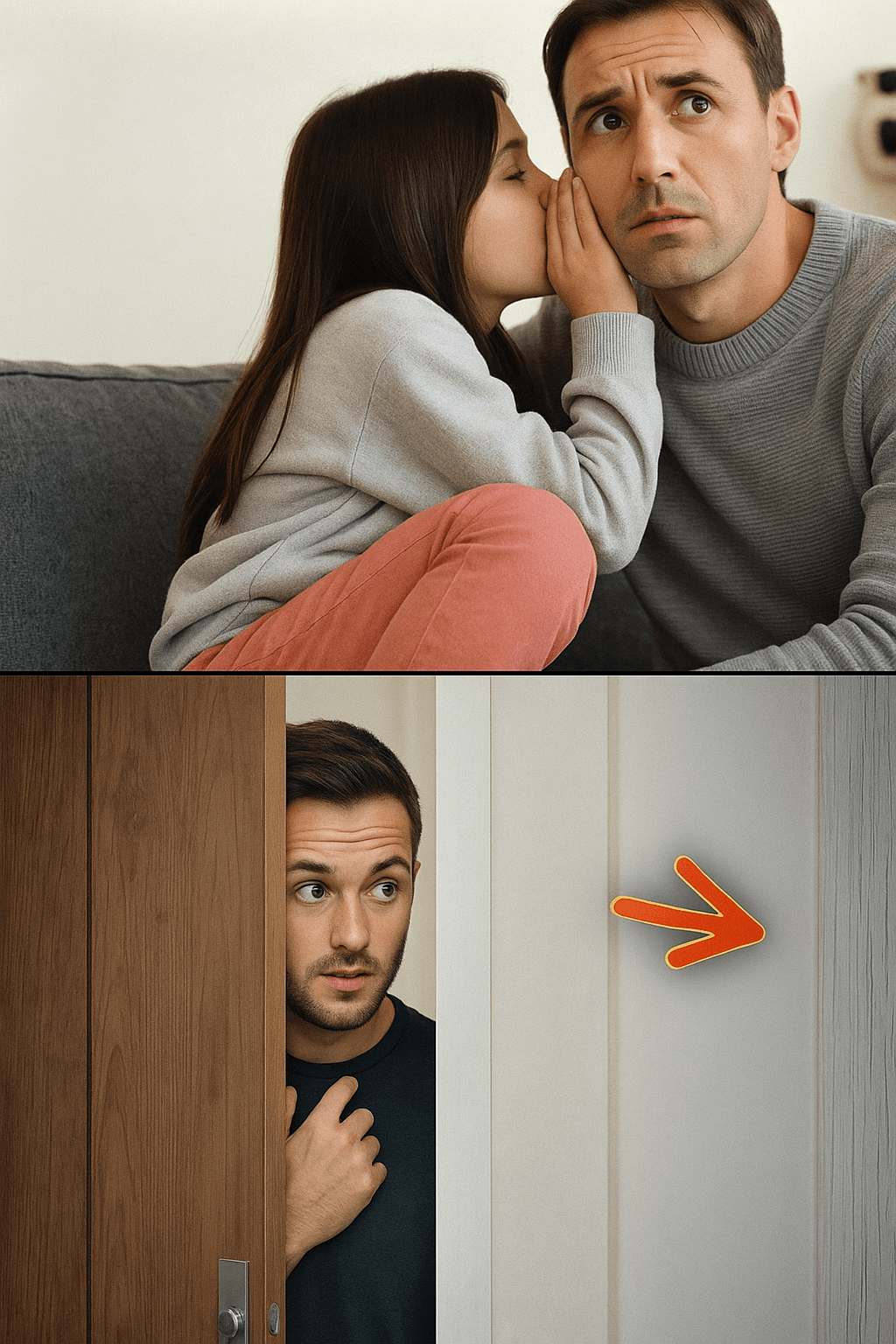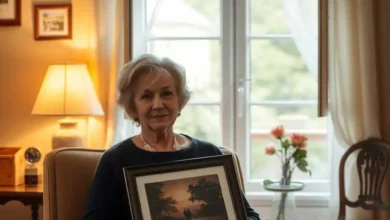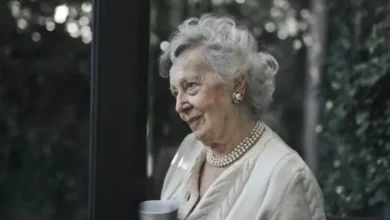“Daddy, if you leave, the new mommy will give me the medicine again. Save me,”

Sofia whispered, clinging to her father. Shocked, Oleg realized something was terribly wrong.
The next morning, he told his wife, Larisa, that he would be going on a short business trip to Brașov.
“I need to go for two days,” he said, watching her reaction closely. “It’s an important client, and I need to handle it in person.”
Larisa just smiled, still glued to her phone.
“Of course, darling. Sofia and I will manage as always.”
But when Oleg looked at his daughter at the table, he saw her shoulders shrink. Sofia didn’t say a word. She refused her food and kept her eyes downcast. When he hugged her to say goodbye, the little girl gripped his arm tightly and whispered:
“Please don’t go.”
Oleg gently stroked her hair and whispered back:
“Trust me. I’m close by.”
He drove to the end of the street and parked the car. He stayed there, hidden, waiting. An hour later, Larisa left with Sofia in the car. Oleg followed them from a distance.
She dropped the girl off at school, but around lunchtime, returned and picked her up early. Instead of heading elsewhere, she brought Sofia back home. Oleg waited another thirty minutes before approaching the house quietly through the back gate.
With the windows slightly open due to the heat, he could hear what was going on inside.
“Sofia, eat something and then take your medicine,” Larisa said.
“I don’t want to… that medicine makes me sleepy all the time,” the girl protested.
“The doctor said it’s for your anxiety,” Larisa insisted.
“But Daddy doesn’t even know about any doctor!” Sofia replied.
Alarmed, Oleg peeked through the kitchen window. He saw Larisa holding a glass of water in one hand and a blister pack of pills in the other.
“Sofia, don’t make me insist. You know what happens if you don’t behave.”
That was enough. Oleg walked into the kitchen, his voice firm:
“What is this?”
Startled, Larisa dropped the pills on the floor. Sofia ran to her father and clung to his leg.
“Oleg! I… I thought you were out of town!” Larisa stammered.
“What medicine is this?” he demanded, picking up the box from the floor.
“It’s just a mild sedative, recommended by the pediatrician…” she tried to explain.
“What doctor? When did you take Sofia without telling me?”
With no coherent answer, he read the label. It was a strong sedative, prescribed only for adults with severe sleep disorders.
“You’ve been drugging my daughter just to make her easier to deal with?” he shouted, furious.
Larisa snapped:
“Your daughter is unbearable! She cries for you all the time, disobeys, throws tantrums… These pills were the only way to control her!”
“Pack your things. Now. You have one hour to get out of my house,” he said, his voice low but resolute. “If not, I’ll call the police.”
Larisa tried to argue but realized she had no way out. She went to the bedroom to pack.
Oleg went to Sofia’s room. She was curled up in bed, holding her wristwatch tightly.
“Is she gone already?” she asked, eyes filled with tears.
“She’s leaving now. And she’ll never hurt you again,” he said, hugging her. “I’m so sorry, sweetheart. I didn’t know.”
“She said if I told you, you’d send me to boarding school…”
Oleg felt crushed. How hadn’t he seen it?
“This will never happen again. I promise,” he said. “From now on, it’s just the two of us. And I’ll be more present.”
In the weeks that followed, Oleg took action: he hired a lawyer for the divorce, spoke to his company to reduce travel, and began therapy sessions for Sofia.
Little by little, the girl began to smile again. Her grades improved, she made new friends, and rejoined school activities.
One night, before bed, Sofia asked:
“Daddy, do you think I’ll ever have a real mom?”
“Maybe,” Oleg replied, stroking her hair. “But there’s no rush. For now, we’re good like this, aren’t we?”
“Just the two of us against the world,” she said, smiling.
And at that moment, Oleg knew: he would never again allow anyone to hurt his daughter. He would be the father she needed — present, watchful, and protective.
Because the safest place for a child is in the heart of a father who truly loves her.
💳 Awareness – Credit Cards: Freedom or Financial Trap?
Credit cards can be great allies — or silent enemies. They make purchases easier, offer installments, accumulate reward points, and provide security for transactions. But they’re also one of the leading causes of family debt in Brazil. The main reason? Unconscious use.
Many people view credit cards as an extension of their income. When the paycheck runs out, the card steps in as a “savior.” But this is a huge mistake. The available limit is not extra money — it’s borrowed money, which must be repaid, often with extremely high interest.
The problem worsens when the bill grows too large to be paid in full. The alternative? Paying the minimum. That’s when the debt enters revolving credit, with interest rates over 300% per year. In no time, the debt snowballs, compromising your budget, emotional health, and family well-being.
Credit cards aren’t villains by nature. They become traps when used without control, planning, and responsibility.
Tips for responsible credit card use:
- Never spend more than you can pay off each month.
- Avoid long installment plans, especially for non-essential purchases.
- Always pay your full bill whenever possible.
- Use the card as a planning tool, not an emergency solution.
- Track your spending regularly with apps or spreadsheets.
Financial education is the best defense against losing control. Understanding how credit works is the first step to using it wisely. After all, financial freedom starts with smart choices.





